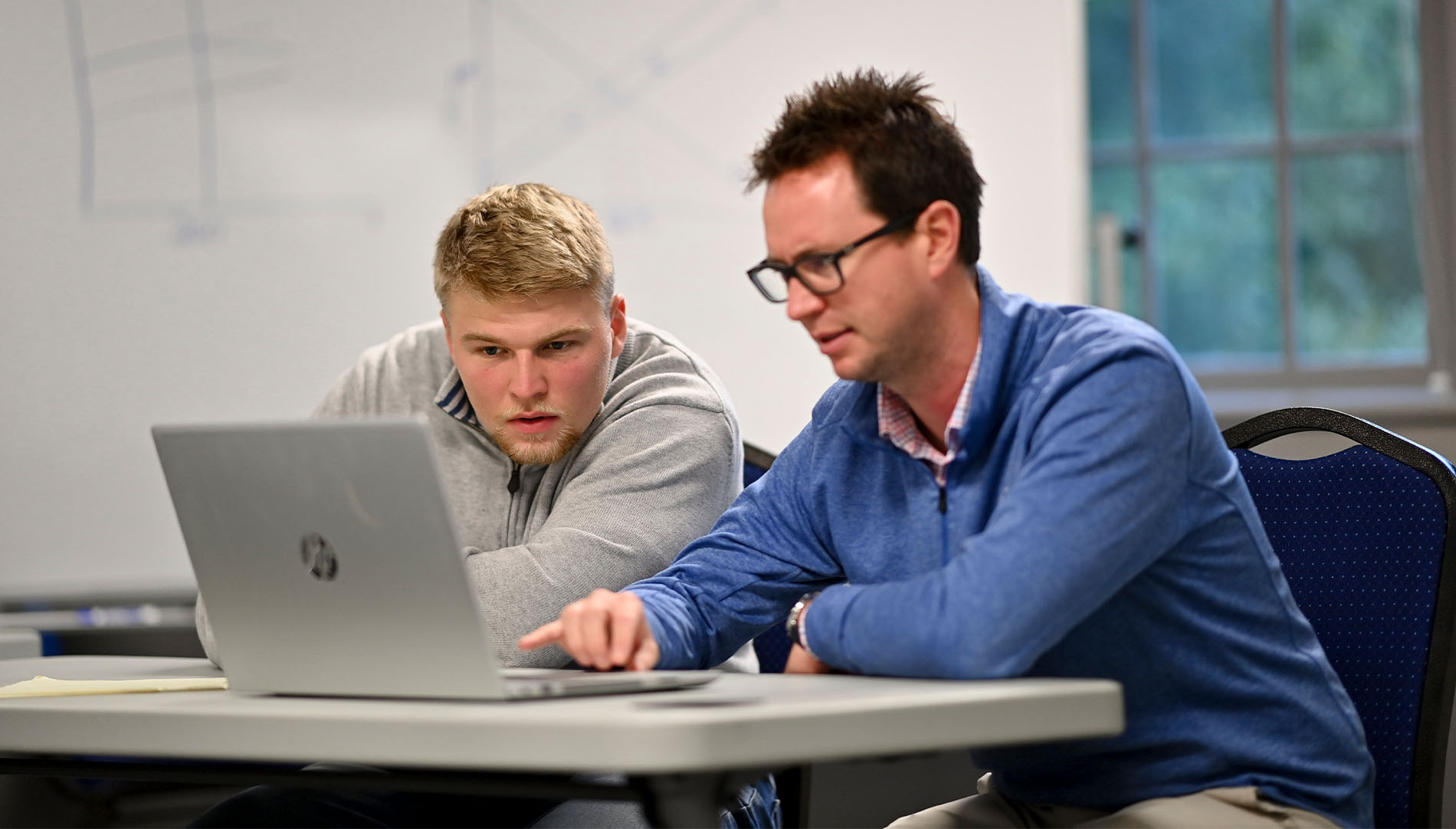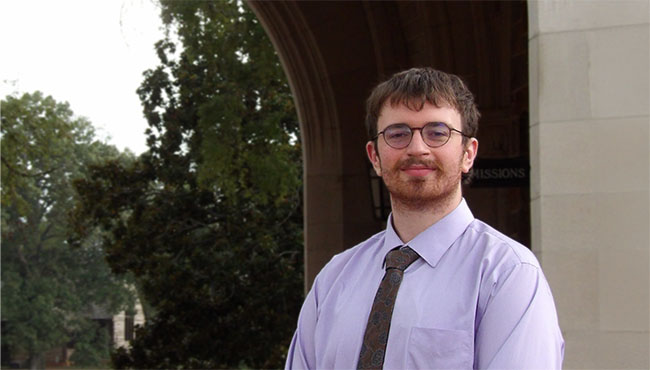Did you know that having mentors in college is considered a critical component of success? According to a Gallup study, students with strong mentoring relationships adjust more easily to college, stay enrolled, make higher grades, and gain enhanced personal and professional development. Having a mentor also increases well-being post-graduation. Read on to learn how to find the right mentor and how to maintain transformative relationships that extend beyond graduation.
WHAT IS MENTORING?
A quick online search to define mentoring can present confusing explanations and requirements. Education experts argue that mentoring relationships take many forms and don’t always need to be formally assigned. Instead, they advise students to look for mentoring relationships "in terms of the character and quality of the relationship and in terms of the specific functions provided by the mentor.”
Many students find high-quality relationships within a network of support instead of a formal mentoring assignment. In Relationship Rich Education: How Human Connections Drive Success in College, the authors describe this as a “set of relationships an individual has with people who take an active interest in and action to advance the individual’s career by assisting with his or her personal and professional development.”
The Berry College community calls this active interest in students a culture of mentorship. Before students step foot on campus, they are assigned a peer and faculty mentor as well as a work supervisor if they choose to get a campus job. In fact, most Berry graduates report that they leave Berry with three or more mentors.
YOU GAIN A KNOWLEDGABLE SOUNDING BOARD
Whether you’re a freshman or a senior, it’s worthwhile to consult someone who can add perspective to your college career. You’ll gain valuable insight from people who can ask the right questions, especially if they’re from a different place or background and see your situation from a different angle.
Jamie Jang benefited from this type of mentoring when she connected with an exercise science professor training her softball team. At the time, she was an animal science major and enjoyed elements of the major, but other parts did not fit her career expectations. Though she loved studying biology, Jamie discovered how much she enjoyed human interaction through her campus job as a writing center consultant.
“As a first-year student, I genuinely thought that changing my major was the end of the world. Then I talked with a knowledgeable professor about what was realistic,” Jamie says. “We discussed the different ways I could apply my learning to future careers, and she changed my perspective. Swapping my major was not a huge deal, and I realized I didn’t have to know my exact path on day one.”
Jamie felt that animal science wasn’t a great fit and knew she was enjoying the one-on-one consulting part of her job in the writing center, but beyond that, she was a little lost. By reflecting with a person who had a different perspective, she could see how all her interests aligned with a different career path. Today, Jamie serves as the assistant director of Berry's student health center, is a student athletic trainer for the football team and just began her honors thesis research on plyometric training with her exercise science professor. She’s reaching her goals thanks to a network of caring faculty and staff.
YOU LEARN FROM AN EXPERT IN YOUR FIELD
Mentors do more than just listen to you — they can connect you with the real world of work, professionalizing classroom learning. Talking with an expert in a certain field who knows the ins and outs of the industry landscape offers many advantages. Experts can help you navigate different career paths, land a job or find an internship. Many students start college with rigid ideas about what careers are available — doctor, teacher, nurse, lawyer — but as they study and interact with mentors, their understanding of career possibilities grows.
Take, for example, the mentoring experience of Dillon Yost ’14, who now works at Lawrence Livermore National Laboratory in California, but whose research opportunities began early in his Berry career. Yost knew he wanted to be a chemist when he got to college but felt conflicted when he enjoyed his math classes. Yost met with Associate Professor of Physical Chemistry Ken Martin and Professor of Mathematics Ron Taylor and shared his dreams for his future. They encouraged him toward real-world work and publication that would combine his interests. Little did he know, these mentors were introducing him to research that would lead to his post-doctoral work at MIT and NASA.
YOU KNOW SOMEONE HAS YOUR BACK
Mentoring goes beyond career connections and academic coaching. Gallup researchers emphasize, “Feeling supported and having deep learning experiences during college means everything when it comes to long-term outcomes after college.”
Ben Lord ’21 felt this kind of support early on in his college career and graduated from Berry with a job in hand. Now an executive communications specialist for Equifax, he says mentors made the difference in shaping his future. When he had temporary setbacks in college because of family-related situations and financial pressure, Associate Professor of Business Communication Sam Nazione stepped in with practical advice, drawing off her own experiences so he could regain a positive mindset and get on track.
“I firmly believe that the best mentors don’t coddle you,” Ben says. “They boost your confidence and persuade you that you are capable of more than you think. Dr. Nazione made it clear that she believed in me and helped me identify and remove obstacles from my path so I could reach my full potential.”
HOW TO FIND A MENTOR
While seeking out mentors sounds like a great idea, you may be wondering how to find the ones that are right for you. Here are a few strategies.
Map out your network – If you are just beginning college, think about the faculty, staff and older students who are already in your daily orbit. Do you already have an advisor, coach or staff member connected to you based on your interests or involvement?
Brainstorm goals and questions, then assess – Once you name who is in your sphere of influence, name your goals and draft questions you need to ask to accomplish those goals. From there, consider whether you need to build stronger relationships with people you already know or forge new relationships.
There are likely circumstances where you want coaching but lack the relationships to formally address your needs. For example, maybe you’ve just come home from studying abroad and are looking for someone who has experienced transitioning back to American culture. Or maybe you are a first-generation college student looking for someone who has successfully navigated the challenges of college transition. So, how do you identify new voices of support?
Ask for introductions – You might not have individuals with the expertise you’re looking for in your network, but they can likely introduce you to others who can assist you. Maybe your professor doesn’t specialize in your research interest, but a close colleague at another institution does. Maybe you’re curious about working for a certain business, and your college has alumni who work there. If you are admitted to a school, don’t forget that your college has a vested interest in your success! Be bold and ask for help!
The introduction is coming, now what? – Imagine that you are being connected to a potential mentor by the alumni association or by a career center. How do you prepare to nurture this relationship?
- Research – What experiences does this person have that relate to your goals? Where do you share common ground? Can you ask for specific advice or come up with questions they could answer?
- Express the why – It may sound like flattery but share what it is about them that you admire and why you are seeking their perspective. If they feel like there is a purpose to the relationship, it will help you connect.
- Be realistic – Most long-terms mentors cannot accommodate weekly meetings. With a busy mentor, set realistic expectations. Ask what they think is reasonable for meetings or communication commitments.
- Be willing to give feedback, too – Mentor/mentee relationships often offer fresh perspective for the mentor. Offer your support and assistance when appropriate.
Mentor relationships don’t have to be long-term to make a powerful impact on your future. Sometimes, a few pivotal conversations can change the course of your college career. Colleges and universities are full of opportunities to nurture these types of developmental relationships. Don’t miss out on this experience – begin deepening your mentoring relationships today!



